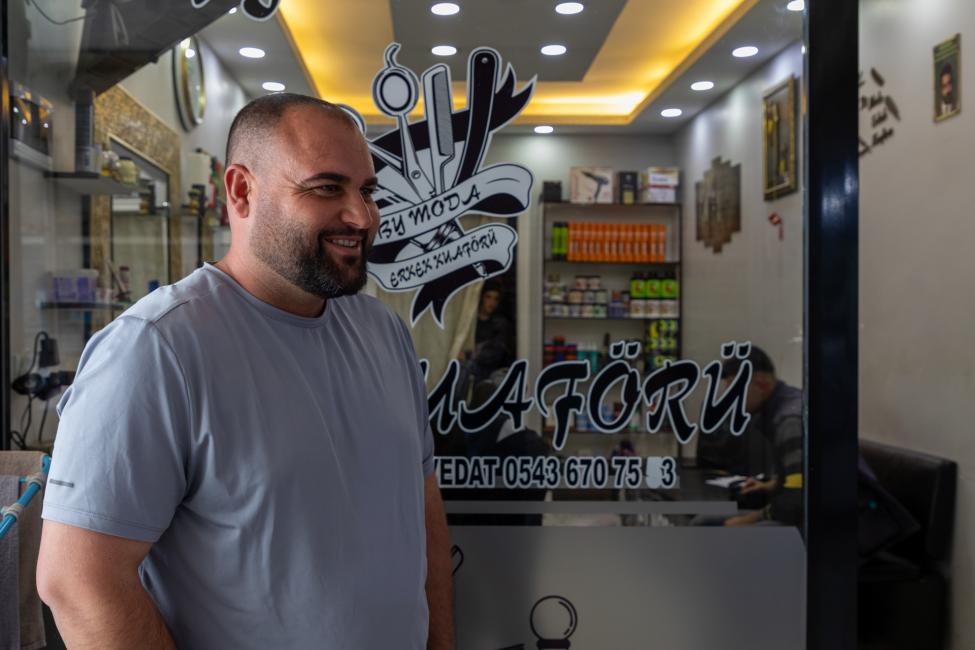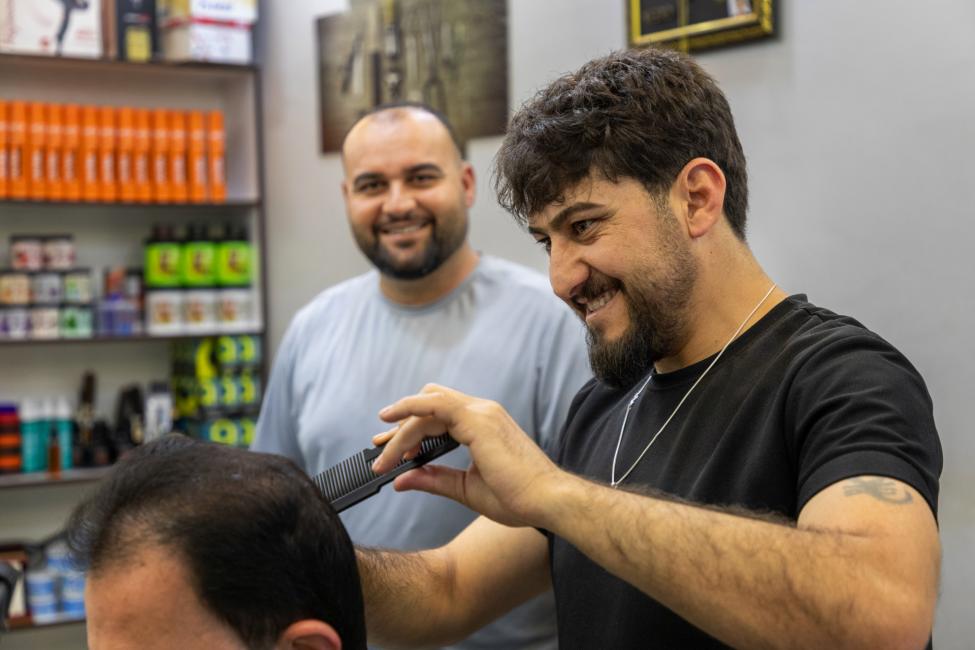-
Who We Are
WHO WE AREThe International Organization for Migration (IOM) is part of the United Nations System as the leading inter-governmental organization promoting humane and orderly migration for the benefit of all. IOM has had a presence in Türkiye since 1991.
About
About
IOM Global
IOM Global
-
Our Work
Our WorkAs the leading inter-governmental organization promoting since 1951 humane and orderly migration, IOM plays a key role to support the achievement of the 2030 Agenda through different areas of intervention that connect both humanitarian assistance and sustainable development. Across Türkiye, IOM addresses the full scope of migration issues, supporting and developing government capacity to manage migration.
Cross-cutting (Global)
Cross-cutting (Global)
- Data and Resources
- Take Action
- 2030 Agenda
A native of the Yazidi community in Sinjar, northern Iraq, Yusuf was living life as a regular teenager. After completing high school, he was inspired by his uncle who owned a barbershop. He decided to learn the trade and spent five years as an apprentice under his uncle.
In 2014, Yusuf's life turned upside down. With the Daesh approaching Sinjar, he and his family were forced to flee to Türkiye.
The journey was arduous. Upon arrival, they first found their bearings in a temporary settlement in Mardin Province. “We had to succeed because we had no other choice,” he recalls of those days.
Yusuf’s childhood friend Naif, also Yazidi, shares a similar story. Becoming a barber was his childhood dream; like Yusuf, he spent a lot of time in his uncle's barbershop. His family found safety in Türkiye’s Diyarbakır Province.
The two eventually reunited in Mardin. A decade later, they are running a barbershop and living their dreams.
In 2016, Yusuf took the initiative to apply for permission to open a small barbershop in the settlement. He started by providing haircuts to fellow residents and trained four apprentices.
His apprentices were eventually resettled to Germany, where they continue to work as barbers.
“When they went to Germany and started their own barbershops, they would call to say they would never forget what I taught them. They said, ‘You taught us that life must go on despite everything. Without your support, we couldn’t have achieved what we did.’ Hearing that meant the world to me,” says Yusuf.
After moving out of the settlement and into a rented home, Yusuf found it difficult to adjust. Initially, he worked as a daily laborer in various barbershops, trying to integrate into the local market.
He finally had the opportunity to open the barbershop he runs today when the International Organization for Migration’s (IOM) cash grant programme came into the picture.
IOM actively engaged migrant and refugee communities in Mardin and conducted needs and market assessments — identifying those with skills and potential to receive cash grants, aimed at supporting their entrepreneurial visions.
Without hesitation, Yusuf asked Naif to be his partner in opening the business. Under the programme, they benefitted from training sessions in business development, enhancing their financial and managerial skills.
After years of challenges, they were glad to be working together, establishing a stable income and doing what they loved most. Overall, IOM has supported 93 enterprises in Mardin, with 17 founded by members of the Yazidi community.
“Our goal is to empower migrants and refugees with the necessary resources to become self-sufficient and contribute to the local economy,” explains Talal Alazzavy of IOM's livelihood team. “This further fosters a greater sense of community for all.”
For Naif, owning his own business brought him greater freedom. “I used to work for others, but now I have my own business. It’s wonderful to have control over my own time.”
Reflecting on how much his life has changed, Naif says, “We lost everything we left behind. Often, we didn’t have enough to eat. This has restored my hopes and made me believe in a better life again.”
Meanwhile, Yusuf remains in contact with his former apprentices, proud of their achievements and hopeful for his own future. “I want to grow my business and provide better services. I want to support the people around me and create a world where my children and family won’t face the same hardships.”
From childhood buddies to business partners, Yusuf’s and Naif’s stories reflect the power of friendship, resilience and the strength of the human spirit.
Support to Yusuf and Naif’s cash grant was made possible with funding from the United States Government.
Written by Anıl Bahşi, IOM Türkiye Communications Specialist


